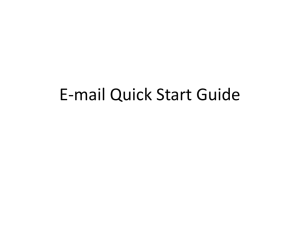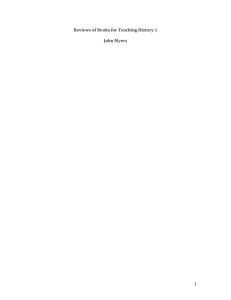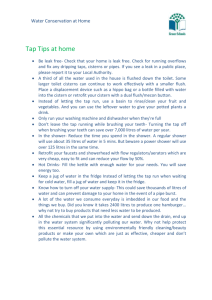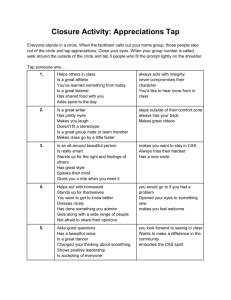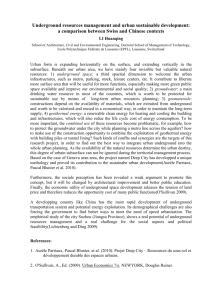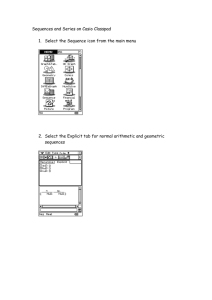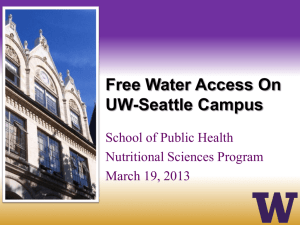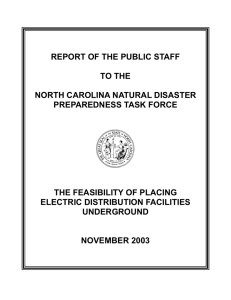Save the Water Water future blue gold. Drinking water represents 3
advertisement
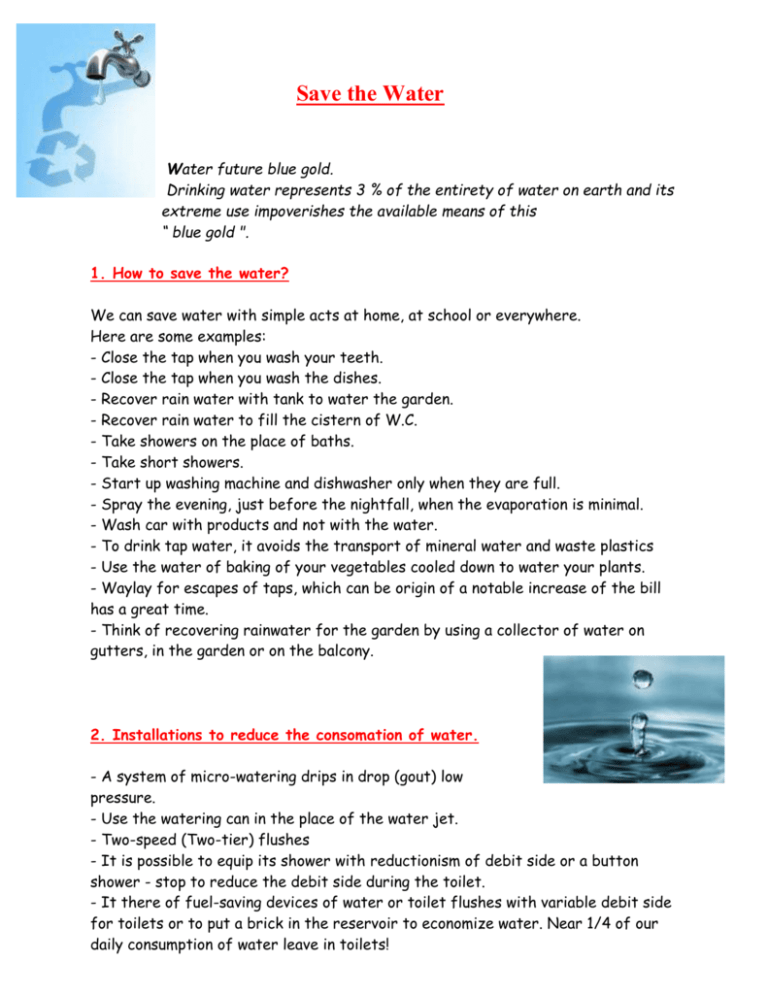
Save the Water Water future blue gold. Drinking water represents 3 % of the entirety of water on earth and its extreme use impoverishes the available means of this “ blue gold ". 1. How to save the water? We can save water with simple acts at home, at school or everywhere. Here are some examples: - Close the tap when you wash your teeth. - Close the tap when you wash the dishes. - Recover rain water with tank to water the garden. - Recover rain water to fill the cistern of W.C. - Take showers on the place of baths. - Take short showers. - Start up washing machine and dishwasher only when they are full. - Spray the evening, just before the nightfall, when the evaporation is minimal. - Wash car with products and not with the water. - To drink tap water, it avoids the transport of mineral water and waste plastics - Use the water of baking of your vegetables cooled down to water your plants. - Waylay for escapes of taps, which can be origin of a notable increase of the bill has a great time. - Think of recovering rainwater for the garden by using a collector of water on gutters, in the garden or on the balcony. 2. Installations to reduce the consomation of water. - A system of micro-watering drips in drop (gout) low pressure. - Use the watering can in the place of the water jet. - Two-speed (Two-tier) flushes - It is possible to equip its shower with reductionism of debit side or a button shower - stop to reduce the debit side during the toilet. - It there of fuel-saving devices of water or toilet flushes with variable debit side for toilets or to put a brick in the reservoir to economize water. Near 1/4 of our daily consumption of water leave in toilets! 3. The treatment of waters The treatment of waters decomposes into two very distinct stages before arriving at the tap. Water is treated in a plant to be made potable, and then routed up to the consumer. Waste water is rejected in sewer and routed up to a plant of cleaning up, before rejecting them in nature by respecting environmental norms. 4. Underground water Underground water contributes to the feeding of sources and watercourses, and their role balance each other essential during summer. They are exploited for human consumption (drinking water), agriculture (irrigation) and industry (water farewell). Quickly economic and environmental importance of underground water force-feeds an appetite of lasting development with their preservation. For the future generations, considering the means which they represent, in quantity and in quality, underground water constitutes an essential heritage. 5. Drinking water Drinking water is subjected to a regulation as for the presence of chlorine, limestone and lead. Also, the provision of manure in cultures, as well as pesticides, must limit itself at the very least necessary, and cannot be used close to means to be protected. The quality of the water distributed in the tap of the consumer depends on the quality of the water of the river or the underground tablecloth in which writing is oral and treatments performed after sample. Numerous controls are performed throughout the chain of production of drinking water: so as to catchments, in the station of treatment, at the level of networks of distribution... 6. Waters of surface In the past, watercourses made the object of a regular maintenance owing to their economic interest (hydraulic energy, firewood, fish for feeding) or of the knowledge of risk. In the course of time, this interest disappeared and a good many of watercourse met in state of abandonment. Now, resident of watercourses have tendency to be solicited from interventions for problems of inundation and, in a lesser measure, for the environmental emphasizing of a natural heritage. In urgent situation, brought resolutions are not the best adapting out of necessity, for lack of time to be correctly studied. Besides, they often treat consequences and not reasons of problems. Chess in the field is numerous and eloquent enough (floods and accentuated erosions) so that, since a dozen years, multidisciplinary teams lean over this question to sensitize the biggest number of partners and to bring some change in practices in this domain. Save water, save our life, Save the World..!!!

